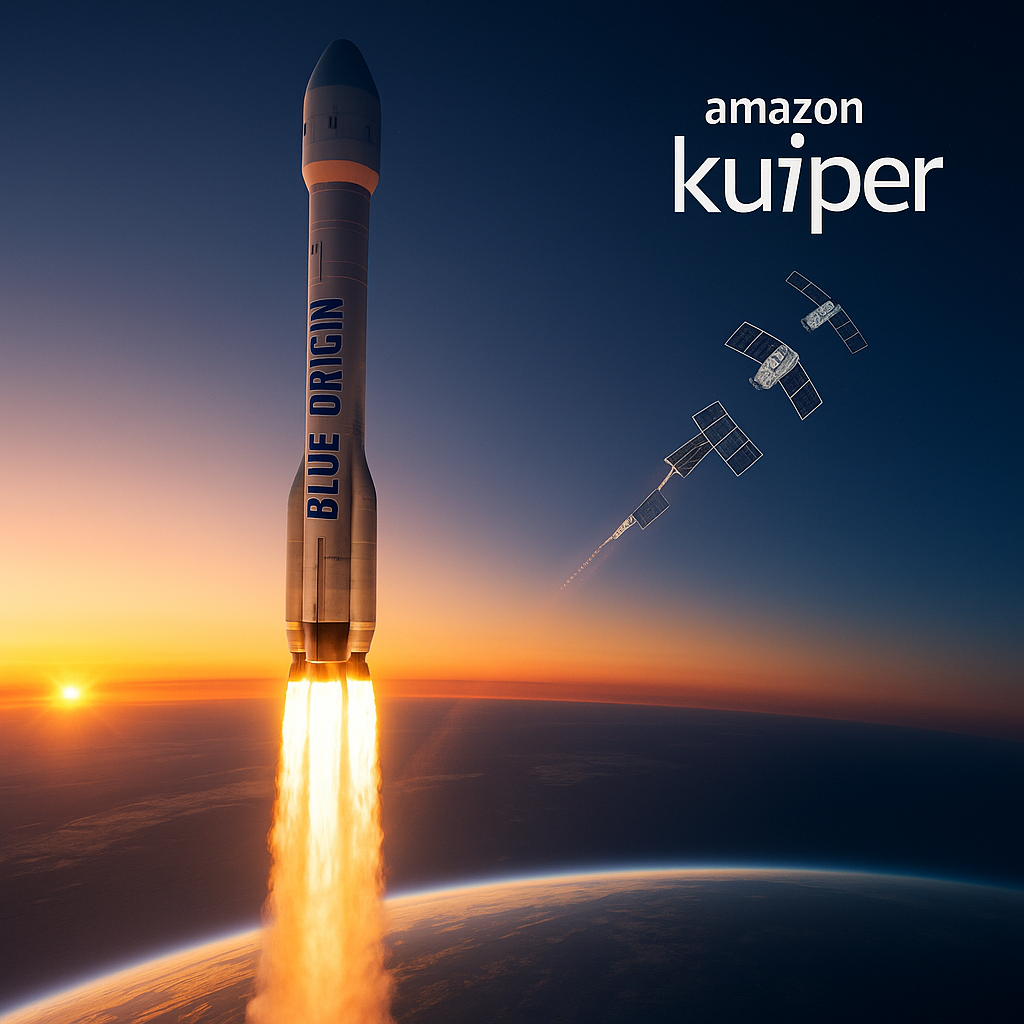July 6, 2025, Cape Canaveral Amazon has successfully launched 50 additional satellites for its Project Kuiper broadband network using a Blue Origin New Glenn rocket. The launch occurred early this morning from Launch Complex 36 and marks the fourth major deployment for Kuiper in 2025.
This mission brings the total number of Kuiper satellites in low Earth orbit to 314, moving Amazon closer to its goal of providing satellite-based internet coverage to underserved regions by mid-2026.
Mission Details
The launch vehicle used was Blue Origin’s New Glenn heavy-lift rocket, which successfully inserted the Kuiper payload into a 590 km orbital altitude. The satellites were deployed in staggered formation to enhance global coverage while minimizing cross-orbit interference.
Each Kuiper satellite includes onboard AI routing, solar panels, and phased-array antennas to support high-speed internet access with latency under 50 milliseconds.
Global Internet Goals
Amazon plans to deploy a total of 3,236 Kuiper satellites over the next two years. The network will compete directly with SpaceX Starlink and aims to serve customers in North America, South America, Africa and remote regions of Asia where fiber and mobile infrastructure are limited.
Amazon has already begun beta testing Kuiper services with schools and hospitals in rural Montana, Kenya and Peru through its Community Connect initiative.
Blue Origin Partnership
This is the second time Blue Origin has launched Kuiper satellites, following a multi-launch agreement between Amazon and Jeff Bezos’ space company. While some missions have used ULA and Arianespace rockets, Amazon has increasingly turned to Blue Origin for bulk Kuiper deployments.
“The New Glenn rocket offers the payload capacity and reusability we need to scale our constellation quickly and efficiently,” said Rajeev Badyal, VP of Technology for Project Kuiper.
Next Steps
Amazon plans two more launches in Q3 2025 and is preparing for a limited commercial rollout of Kuiper internet service in early 2026. User terminals, which resemble a flat pizza box, are being manufactured at a new facility in Kirkland, Washington.
Conclusion
With 50 new satellites now in orbit, Amazon’s Project Kuiper has made significant progress toward building a global broadband internet network. As competition in the satellite internet space intensifies, Kuiper’s continued expansion could reshape how remote regions access the web in the coming decade.
Sources: Amazon Newsroom, Blue Origin, Spaceflight Now
